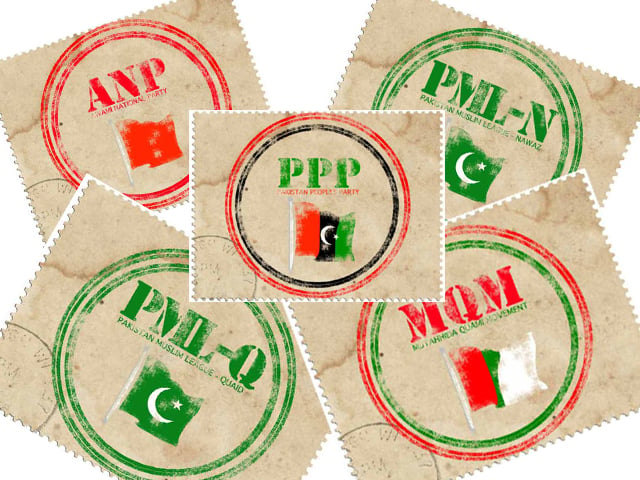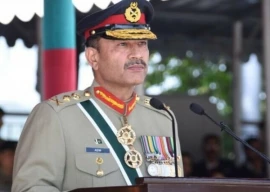
The ruling coalition on Tuesday announced that the committee currently engaged in talks with the PTI will not be dissolved and would continue to work beyond the deadline set by the opposition party, saying achieving a positive outcome of the exercise was crucial than meeting the deadline.
Not only that, the government side also indicated that it might present its set of demands before the PTI committee in the upcoming meetings, implying that deliberation on the charter of demands and discussions in the party and inter-party circles would consume more time than the deadline set by the PTI.
The statement comes at a time when the opposition PTI's negotiation committee has consistently been conveying that the ongoing dialogue process with the government cannot move forward unless a judicial commission is formed by January 31 to investigate the incidents of May 9 and November 26.
The PTI, while putting down its foot on the judicial probe, has also been demanding release of its founder Imran Khan and party workers. The government-PTI talks had a temporary stalemate but now both sides are all set to meet on January 16 for the third round when the PTI will table its charter of demands in writing.
Amid repeated statements by the PTI leadership that the government must take practical steps to show its seriousness before Jan 31, the spokesperson for the government's negotiation committee with PTI, Senator Irfan Siddiqui, announced that "the committee will not be dissolved on January 31".
The PML-N leader and committee's spokesperson underscored the importance of achieving meaningful outcomes over rigidly adhering to deadlines, stating, "a positive outcome is our priority, not merely meeting a deadline".
In interviews with various media outlets, Senator Siddiqui explained that the seven political parties represented in the government's negotiation committee need time to consult their respective leadership before formulating a unified response to the PTI's demands.
He emphasized that a consensus among the parties was essential before the committee can present a collective stance, adding that the process may take some time. Commenting on the PTI's demands, Senator Siddiqui described them as complex and of significant gravity.
He clarified that while the government committee has not made any demands so far, "it may propose certain suggestions if the dialogue process moves forward smoothly". These proposals, he noted, will be "Pakistan- and people-specific" rather than focusing on individuals or political parties.
Responding to a question, Siddiqui recalled that during the December 23 meeting, the PTI had committed to submit its demands in writing. However, even after three weeks, no written demands have been received. He expressed hope that PTI would present its demands in the next meeting, after which the government committee will respond accordingly.
Siddiqui also addressed concerns about civil disobedience and social media campaigns, clarifying that the government committee has not asked the PTI to call off such activities or cease negative social media rhetoric. He, however, cautioned that tweets and statements detrimental to the dialogue process should be avoided.
"The PTI's demands are not merely a letter that can be answered immediately. The nature of these demands requires time for serious deliberations."
Meanwhile, PTI chairman Barrister Gohar, while talking to reporters outside Adiala Jail, said that the PTI will present its charter of demands before the government's committee in the next meeting scheduled for January 16.
The delay in tabling the demands was attributed to the government side's failure to arrange a meeting between the PTI founder and the committee in jail, as earlier promised by the government's committee. Seeing the PTI sticking to its stance that it would submit demands only after consulting with Khan, the government arranged the meeting between Khan and PTI committee on Sunday.
During the meeting, the PTI leadership decided that it would not take the talks beyond January 31 as there was ample amount of time before that for the government to at least constitute judicial commission led by senior most judge(s) of the Supreme Court.
The PTI believes that formation of the commission and release of prisoners would establish authority of the government's committee and pave the way for further talks. Some leaders of the government side, however, have been conveying through their public statements that the release of prisoners can only take place from courts after facing trials.
The talks that started on December 23, 2024, have stretched into third week and the previous two sittings couldn't go beyond optics. With PTI submitting its charter of demands in the next meeting, it is being hoped that talks would enter the stage where both sides' will begin meaningful discussions on the demands.

1736930668-0/Untitled-design-(97)1736930668-0-405x300.webp)
1736931444-0/BeFunky-collage-(51)1736931444-0-165x106.webp)

1736929668-0/Untitled-design-(96)1736929668-0-165x106.webp)

1736931614-0/sidra--(7)1736931614-0-270x192.webp)



1736928680-0/Tribune-N-(2)1736928680-0-270x192.webp)
1732012115-0/Untitled-design-(14)1732012115-0-270x192.webp)
1736844405-0/Express-Tribune-(2)1736844405-0-270x192.webp)










COMMENTS
Comments are moderated and generally will be posted if they are on-topic and not abusive.
For more information, please see our Comments FAQ